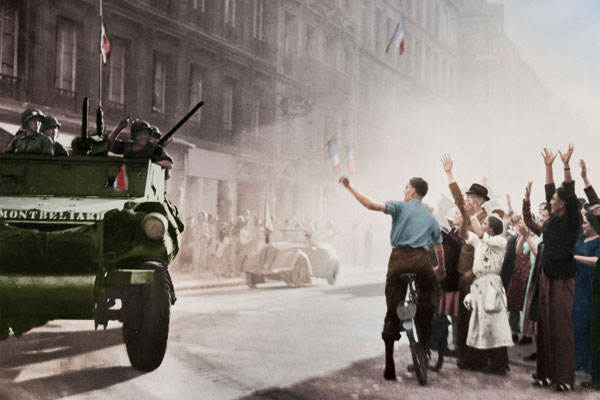It is fair to assume that Professor Matthew Cobb has often been asked if he is related to Professor Richard Cobb since he begins the acknowledgements of his new book by announcing that he is not. Richard Cobb wrote books about France — where he was known as l’étonnant Cobb and, according to his obituary in the Independent, ‘once greeted the dawn nude, in the company of a dozen similarly unattired men and women, in the fountains of the Place de la Concorde’ — and he had a son called Matthew; and Matthew Cobb’s father was called Richard, so the question is understandable. It must also be annoying, though, because Richard Cobb was such a stylish writer, while Matthew Cobb is less so.
Still, Eleven Days in August provides the fullest account imaginable of the Battle for Paris, which not only liberated the city but also determined the political future of France. Cobb draws on a vast array of sources — including material from French and American archives, and the journals and letters of Resistance fighters, collaborators, Allied and German military personnel and all sorts of Parisians — to give an exhaustive, hour-by-hour account of the hectic and momentous days of 15–26 August 1944.
Besides the Germans, who had marched into the city on 14 June 1940 without a shot being fired, the main players were the Resistance, General de Gaulle’s Free French, the fascist paramilitary Milice, the collaborationist politicians, the Allies, and the citizens of Paris.
The Resistance continued to fight the Germans, and was close to the communists, while the Free French were entirely dependent on the Allies, and wanted to wait for them to arrive, but were at the same time at odds with them, since after D-Day in June 1944 they planned to set up an Allied Military Government.








Comments
Join the debate for just £1 a month
Be part of the conversation with other Spectator readers by getting your first three months for £3.
UNLOCK ACCESS Just £1 a monthAlready a subscriber? Log in